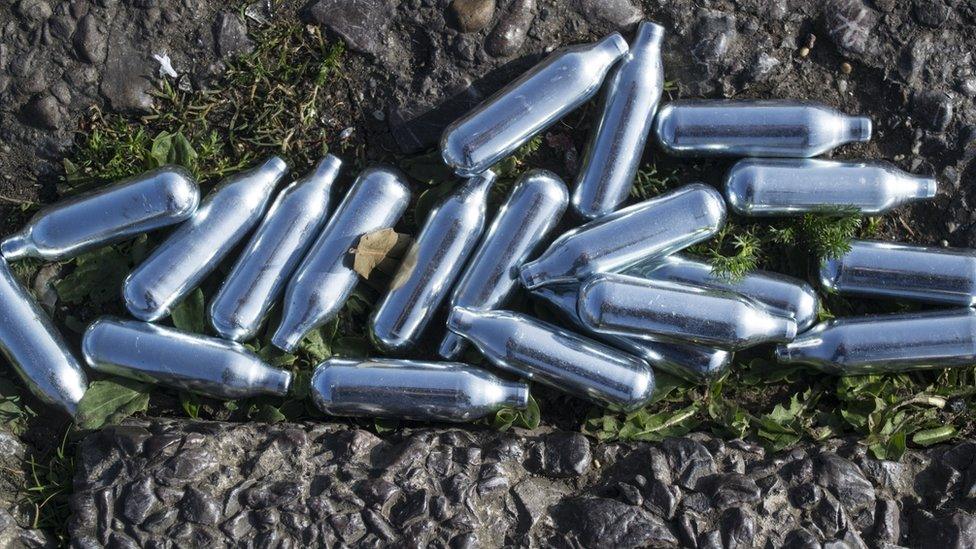Police commissioner backs ban on nitrous oxide
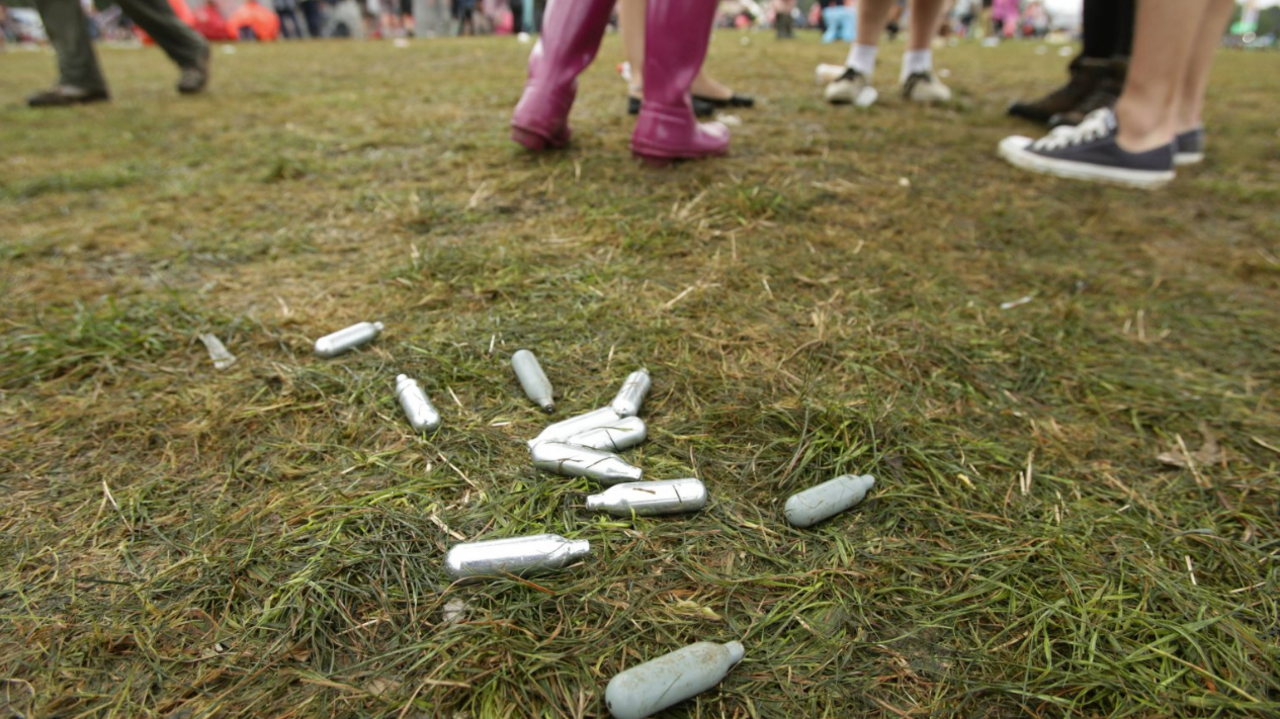
Alison Hernandez said abuse of so-called 'laughing gas' was dangerous to health
At a glance
Nitrous oxide is banned in a bid to tackle anti-social behaviour and health risks
The Devon and Cornwall Police and Crime Commissioner supports the ban and says it will help create safer communities
Alison Hernandez says abuse of so-called "laughing gas" is dangerous to health.
- Published
A ban on nitrous oxide, also known as ‘laughing gas’, which has come into force has been welcomed by the Police and Crime Commissioner for Devon and Cornwall.
Alison Hernandez said it would help local authorities, organisations and police bear down on anti-social behaviour.
The law also aims to reduce health risks associated with the misuse of the Class C drug, she said.
Nitrous oxide was linked to "intimidating gatherings" and littering in public spaces as well as potentially fatal accidents on the roads, she added.
What does nitrous oxide do to the body?
According to drugs information website Frank, low levels of nitrous oxide use results in:
Severe headaches and dizziness
An inability to "think straight"
Short-lived but intense feelings of paranoia
Under the new law, anyone caught possessing nitrous oxide with the intention of inhaling it for a psychoactive effect could face an unlimited fine, a community punishment, a caution or a prison sentence of up to two years.
Dealers of the drug could face up to 14 years in prison.
Ms Hernandez said: "I welcome this move by the government to send a clear signal to people, especially young people, that not only is abuse of nitrous oxide dangerous to their health, but it is also illegal and those caught possessing it will face consequences."
Follow BBC News South West on X (formerly Twitter), external, Facebook, external and Instagram, external. Send your story ideas to spotlight@bbc.co.uk, external.
Related topics
- Published8 November 2023
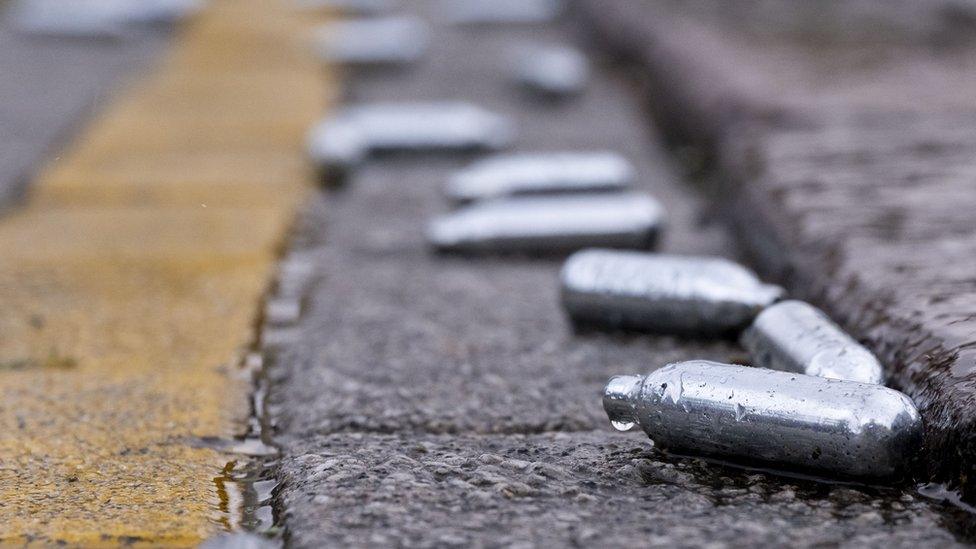
- Published11 April 2024
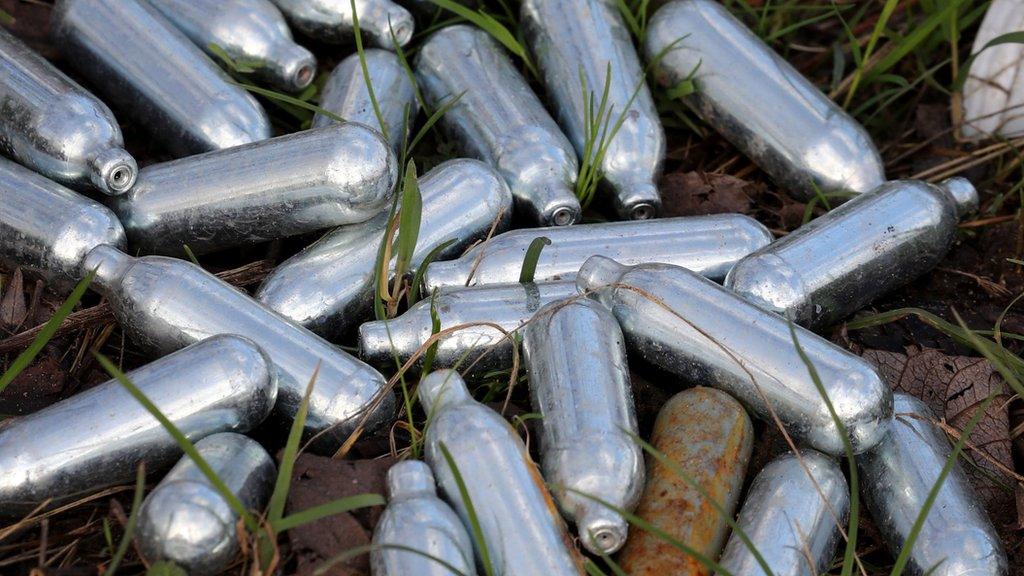
- Published31 August 2023
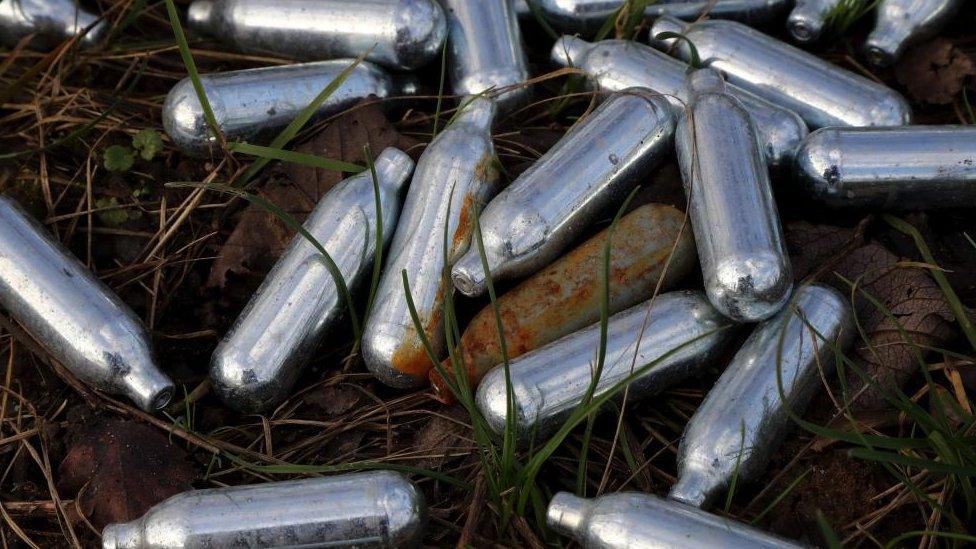
- Published6 March 2023
